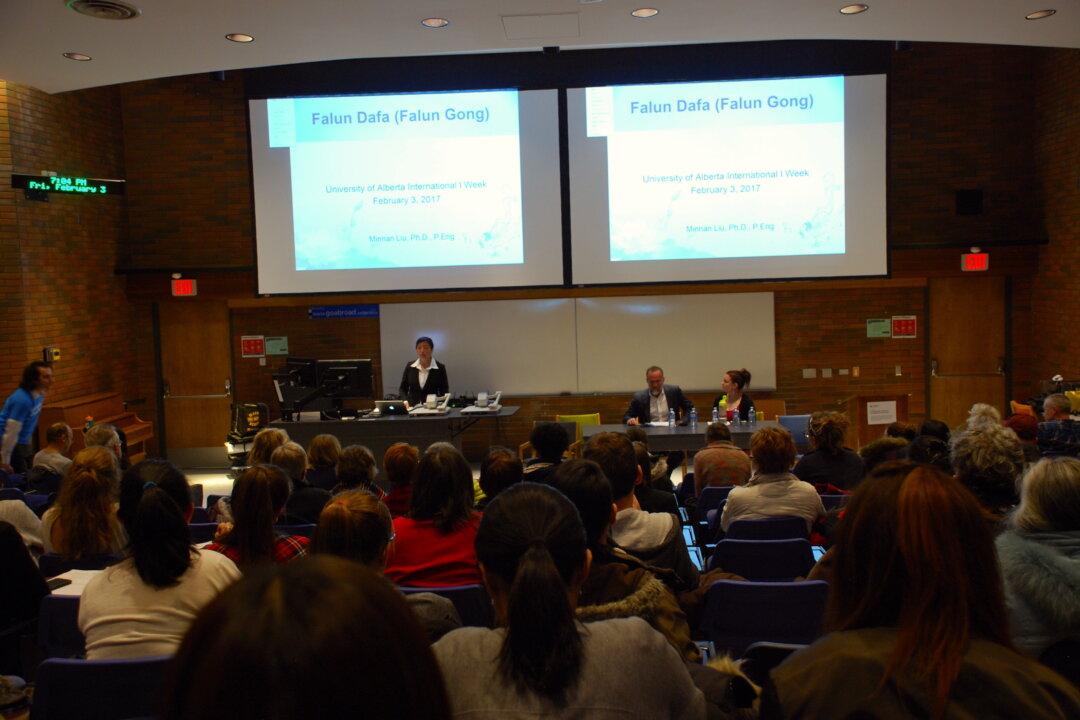During the University of Alberta’s annual International Week, or I-Week as it has come to be known, participants got to see an award-winning Canadian documentary about a horrendous human rights abuse in China and engage in discussion with a panel of medical ethics and social experts.
I-Week is the U of A’s largest annual extracurricular educational event meant to “foster global citizenship through engagement with today’s most pressing issues.”
“Human Harvest,” directed by Vancouverite Leon Lee, was screened on Friday, Feb. 3, to a 250-person room packed to capacity. The film, which has won the prestigious Peabody Award among many others, explores the issue of state-sanctioned forced organ harvesting from Falun Gong adherents in China.
There's a real inherent danger in passively standing by and letting any kind of atrocity happen in any part of the world.





